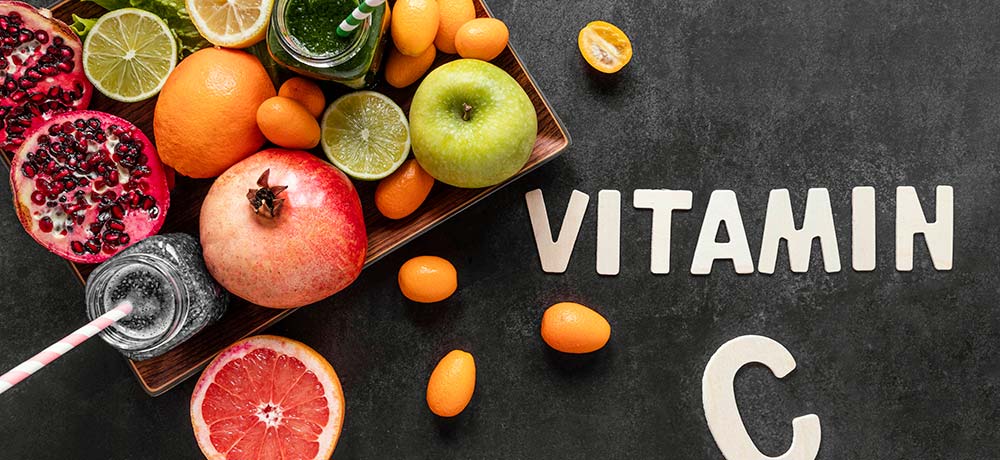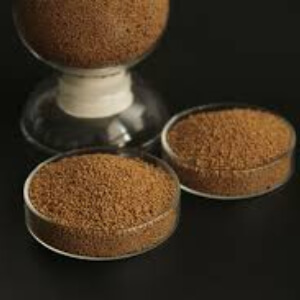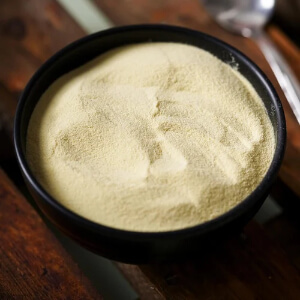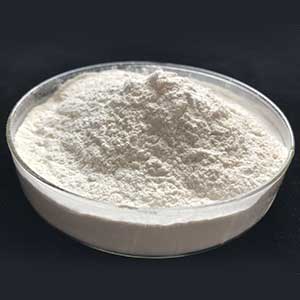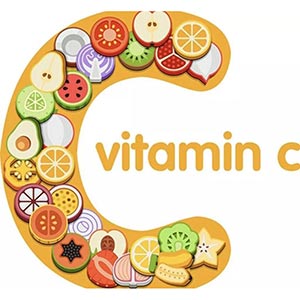
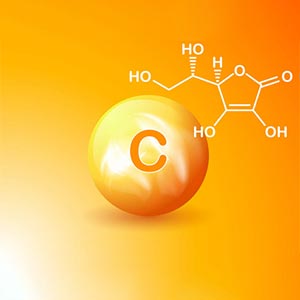
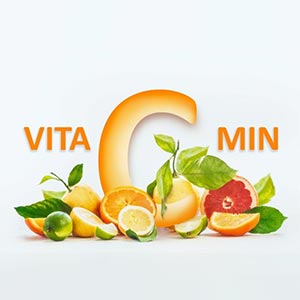


Vitamin C / Ascorbic Acid
Vitamin C, also known as ascorbic acid, is a water-soluble vitamin that plays several important roles in the body. Chempora is a leading China supplier of Vitamin C / Ascorbic Acid, we provide high quality Vitamin C / Ascorbic Acid for customers, if you have any demands, please free contact with [email protected], we will reply you soon.
CAS No.: 50-81-7
Specification Available: 40-80Mesh
MOQ: 1Ton
PRODUCT DETAILS
Product Information:
Product Name: Vitamin C / Ascorbic Acid
Specification available: 40-80Mesh
CAS No.: 50-81-7
Appearance: White Crystalline Powder
What is Vitamin C?
Vitamin C, also known as ascorbic acid, is a water-soluble vitamin that is essential for various bodily functions. It plays a critical role in the synthesis of collagen, a protein that helps maintain the integrity of skin, cartilage, tendons, ligaments, and blood vessels. Vitamin C also functions as an antioxidant, helping to protect cells from damage caused by free radicals, which are unstable molecules that can damage cells and contribute to the aging process and the development of diseases like cancer and heart disease. Additionally, vitamin C enhances the absorption of non-heme iron, the form of iron present in plant-based foods, which is important for preventing iron deficiency anemia.
What’s the Application of Vitamin C / Ascorbic Acid?
Vitamin C has a wide range of applications in various industries due to its antioxidant properties and essential role in human health. In the food and beverage industry, it is commonly added to products to prevent oxidation and preserve freshness. It is used in the pharmaceutical industry to prevent and treat scurvy, a disease caused by vitamin C deficiency, and as an ingredient in many dietary supplements. The cosmetic industry uses vitamin C in skincare products to promote collagen production, reduce the appearance of wrinkles, and improve skin texture and tone. Additionally, vitamin C is used in agriculture to improve the shelf life of fruits and vegetables and in the manufacturing of certain types of plastics and adhesives.
How to Use Vitamin C / Ascorbic Acid in Food Additives?
Vitamin C is used as a food additive primarily for its antioxidant properties, which help preserve the color, flavor, and nutritional value of foods. It can be added to a variety of food products, including juices, dried fruits, and processed meats. In fruit juices and beverages, vitamin C prevents oxidation, maintaining the color and flavor of the product. In dried fruits, it helps prevent browning and preserves the nutritional content. In processed meats, vitamin C is used to maintain the red color and prevent the formation of nitrosamines, which are potentially harmful compounds that can form during the curing process. It is also used in baking to improve dough quality and volume. The use of vitamin C as a food additive must comply with regulatory standards set by organizations such as the FDA to ensure safety and efficacy.
What is Taking Vitamin C / Ascorbic Acid Good For?
Taking vitamin C supplements can provide numerous health benefits. It is essential for the growth, development, and repair of all body tissues and plays a crucial role in many bodily functions, including collagen synthesis, the absorption of iron, the proper functioning of the immune system, wound healing, and the maintenance of cartilage, bones, and teeth. Vitamin C also acts as a powerful antioxidant, protecting cells from damage caused by free radicals. Some studies suggest that vitamin C may help reduce the risk of chronic diseases such as heart disease, cancer, and eye disorders like cataracts and age-related macular degeneration. Additionally, vitamin C supplements can help prevent and treat vitamin C deficiency and its related conditions, such as scurvy.
Which Food is Highest in Vitamin C / Ascorbic Acid?
Several foods are rich in vitamin C, with fruits and vegetables being the best sources. Some of the highest sources of vitamin C include:
1) Citrus fruits: Oranges, grapefruits, lemons, and limes are well-known for their high vitamin C content.
2) Berries: Strawberries, raspberries, blueberries, and blackberries provide significant amounts of vitamin C.
3) Kiwi: This small fruit is exceptionally rich in vitamin C.
4) Bell peppers: Both red and green bell peppers contain high levels of vitamin C.
5) Broccoli: This cruciferous vegetable is a great source of vitamin C.
6) Papaya: This tropical fruit is packed with vitamin C.
7) Tomatoes: Tomatoes and tomato juice are excellent sources of vitamin C.
8)Leafy greens: Spinach, kale, and other leafy greens also provide substantial amounts of vitamin C.
Is it OK if I Take Vitamin C / Ascorbic Acid Every Day?
Yes, it is generally safe to take vitamin C every day. The recommended daily allowance (RDA) for vitamin C varies by age, sex, and life stage, but for most adults, it is 65 to 90 milligrams per day, with an upper limit of 2,000 milligrams per day to avoid potential side effects. Regular intake of vitamin C is beneficial for maintaining overall health, supporting the immune system, and preventing deficiency. However, it is best to obtain vitamin C from a balanced diet rich in fruits and vegetables, and supplements should only be used if dietary intake is insufficient.
What Are the Side Effects of Taking Vitamin C / Ascorbic Acid?
While vitamin C is generally safe, excessive intake can lead to side effects. Common side effects of high doses (over 2,000 milligrams per day) include:
1) Diarrhea: High doses can cause gastrointestinal disturbances.
2) Nausea and vomiting: Excessive vitamin C can irritate the stomach.
3) Heartburn: Some people may experience acid reflux.
4) Abdominal cramps: High doses can cause stomach pain.
5) Headache: Overconsumption may lead to headaches in some individuals.
6) Kidney stones: Large amounts of vitamin C can increase the risk of developing kidney stones in susceptible individuals.
Should I Take My Vitamin C / Ascorbic Acid in the Morning or at Night?
There is no strict rule about when to take vitamin C, but it is often recommended to take it in the morning with breakfast. This is because vitamin C can increase energy levels, which might be more beneficial during the day. Additionally, taking vitamin C with food can enhance its absorption and reduce the risk of gastrointestinal discomfort. However, some people may prefer taking it at night if it suits their routine better. The key is to be consistent with the timing each day to maintain steady levels of the vitamin in the body.
Is Vitamin C / Ascorbic Acid Good for Skin and Hair?
Yes, vitamin C is beneficial for both skin and hair. For the skin, vitamin C:
1) Promotes collagen production: Collagen is essential for maintaining skin elasticity and firmness.
2) Reduces wrinkles: Its antioxidant properties help reduce the appearance of fine lines and wrinkles.
3) Fades hyperpigmentation: Vitamin C can lighten dark spots and even out skin tone.
4) Protects against sun damage: It neutralizes free radicals caused by UV exposure, preventing sunburn and photoaging.
For hair, vitamin C:
1) Prevents hair loss: It strengthens hair follicles and promotes hair growth.
2) Reduces dandruff: Its antioxidant properties help maintain a healthy scalp.
3) Improves hair texture: Regular intake of vitamin C can lead to shinier and more resilient hair.
Can I Put Vitamin C / Ascorbic Acid on My Face?
Yes, you can apply vitamin C directly to your face in the form of serums and creams. Topical vitamin C is effective for:
1) Brightening the skin: It can reduce dullness and enhance radiance.
2) Reducing signs of aging: It helps diminish fine lines and wrinkles.
3) Treating hyperpigmentation: It can lighten dark spots and even out skin tone.
4) Protecting against environmental damage: Its antioxidant properties shield the skin from free radical damage.
How Long to Leave Vitamin C / Ascorbic Acid on Face?
When using vitamin C serums or creams, it is generally recommended to leave them on the face for as long as possible to maximize their benefits. Most products are designed to be left on the skin and not rinsed off. Typically, you can apply vitamin C in the morning under sunscreen or in the evening before applying moisturizer. Always follow the instructions provided by the product manufacturer for the best results.
Is Vitamin E and B or C Better for Skin?
Each of these vitamins offers unique benefits for the skin:
1) Vitamin C: Known for its brightening, anti-aging, and protective effects against sun damage.
2) Vitamin E: A powerful antioxidant that moisturizes the skin, reduces inflammation, and promotes healing.
3) Vitamin B (Niacinamide): Improves skin barrier function, reduces redness, and minimizes pores.
Choosing the best vitamin depends on your specific skin concerns. Many skincare products combine these vitamins to provide a comprehensive approach to skin health.
What Should You Not Use Vitamin C / Ascorbic Acid With?
When using vitamin C in skincare, it is important to be mindful of potential interactions with other active ingredients. Avoid using vitamin C with:
1) Benzoyl Peroxide: It can oxidize vitamin C, reducing its effectiveness.
2) etinol: Combining these can cause irritation and decrease the stability of both ingredients.
3) AHAs/BHAs: These acids can alter the pH balance, making vitamin C less effective and potentially irritating.
Is 1000mg of Vitamin C / Ascorbic Acid Too Much?
Taking 1000mg of vitamin C daily is generally considered safe for most people and can provide health benefits, especially during times of increased physical stress or illness. However, it is close to the upper limit of the recommended daily intake, so it is essential to monitor for any signs of side effects. If you have any health conditions or are taking other medications, it is best to consult with a healthcare provider before taking high doses of vitamin C to ensure it is safe for you.
Where to buy Vitamin C / Ascorbic Acid ?
Chempora is a leading China supplier of Vitamin C / Ascorbic Acid, we provide high quality Vitamin C / Ascorbic Acid for customers, if you have any demands, please free contact with [email protected], we will reply you soon.
Contact Us
CHEMPORA CO., LIMITED
Contact Person: Mr. Stephen Ding
Tel: 0086-21-58930128
WhatsApp & Wechat: +8615026665594
E-mail: [email protected]

